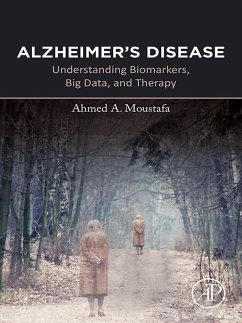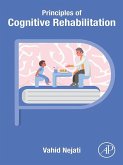Nearly 44 million people have Alzheimer's or related dementia worldwide, according to the Alzheimer's Disease International organization. That number is expected to double every 20 years. Unlike other books on the market,
Alzheimer's Disease: Understanding Biomarkers, Big Data, and Therapy covers recent advancements in cognitive, clinical, neural, and therapeutic aspects of Alzheimer's and other forms of dementia.First, readers are introduced to cognitive and clinical studies, focusing on the different types of memory impairment, past and future thinking. This includes the prevalence of depression, its relationship to other symptoms, and the quality of life for those with Alzheimer's disease. In addition, the book discusses recent studies on memory dysfunction in advanced-stage Alzheimer's disease, in comparison to early-stage, including a chapter on the underlying factors in the transition from mild cognitive impairment to Alzheimer's diagnosis. Following this section, the book presents recent studies on the role of different cortical and subcortical structures in the development of various symptoms in Alzheimer's disease, as well as different neural biomarkers underlying the development and treatment of the disease. In the last section of the book, therapeutic aspects of Alzheimer's disease, focusing on behavioral and pharmacological treatments of sleep disorders, memory problems, and depression, are reviewed. The book aids readers in understanding the advances in research and care, making it a prime tool for all clinicians, psychologists, researchers, neurologists, and caregivers of dementia patients.
- Reviews recent developments of cognitive and clinical studies
- Covers factors underlying the transition from mild cognitive impairment to Alzheimer's disease
- Discusses different neural biomarkers underlying the development and treatment of Alzheimer's disease
- Provides a comparison of the effectiveness of various types of treatments
Dieser Download kann aus rechtlichen Gründen nur mit Rechnungsadresse in A, B, BG, CY, CZ, D, DK, EW, E, FIN, F, GR, HR, H, IRL, I, LT, L, LR, M, NL, PL, P, R, S, SLO, SK ausgeliefert werden.









